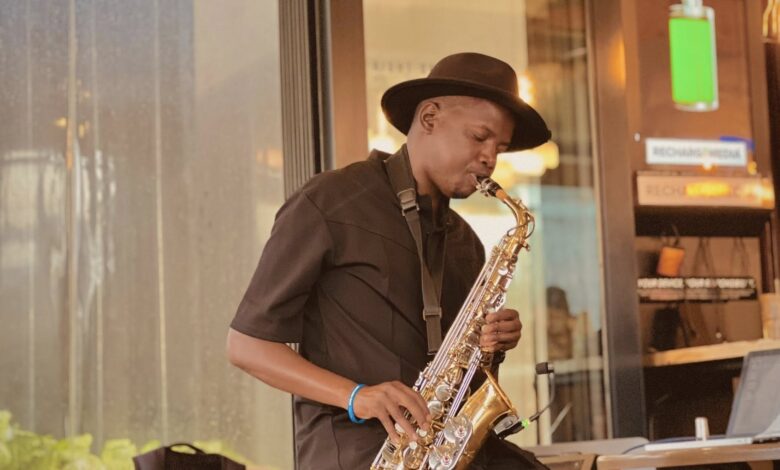Sir Arundel: The Prince of Horns Leading Zimbabwe’s Brass Renaissance

In Zimbabwe’s flourishing music landscape, one name continues to stand out—Sir Arundel, born Panashe Arundel Matoi. With a saxophone in hand and a message in his melodies, he’s been affectionately dubbed “The Prince of Horns” by admirers and media alike. Whether captivating crowds on stage or shaping future musicians in the classroom, Sir Arundel is breathing new life into both African traditional and Western musical expressions.
His journey from passionate player to national musical figure is one rooted in dedication and artistry. Inspired by legendary saxophonists like Kenny Garreth, Dexter Gordon, Moses Khumalo, Joseph Chinouriri, and Denilson Musekiwa, Sir Arundel has fused influences from around the world to develop a sound uniquely his own. It’s a blend that has made him a top choice for bands, session musicians, and DJs who value not just skill, but soul.
Armed with a diploma in music from Music Crossroads Academy in Zimbabwe, Sir Arundel brings both formal training and raw talent to his performances. “I usually do not sing with my natural voice. Instead, I blow all the beautiful melodies on the saxophone,” he explains. Over the years, he has mastered a range of brass and woodwind instruments, balancing a thriving career as both performer and educator.
A regular on the live music circuit, he performs with a tight four-piece band featuring Liberty Saizi on keyboards, Cole Rusike on drums, Naison Banda on bass, and himself on saxophone. Together, they lift audiences with a sound where brass doesn’t just accompany—it leads. “Brass lifts the music, and all melodies are sung through the saxophone,” Sir Arundel says.
But the journey hasn’t been without challenges. In Zimbabwe, brass instruments remain relatively scarce, making it difficult for young, aspiring musicians to access the tools they need. Sir Arundel sees this not just as a hurdle but as an opportunity. “Music colleges are multiplying, students are eager, and teachers will be needed more than ever,” he says. “There is business here, yes, but more importantly, there is legacy.”
His message to parents is clear: invest in your child’s musical journey. “When we place a saxophone in their hands or a trumpet to their lips, we do more than buy an instrument. We awaken a future.”
Beyond his personal achievements, Sir Arundel has become a beacon of hope for the revival of brass music in Zimbabwe. While military and police bands have long promoted wind instruments, Sir Arundel is pushing that movement forward in the mainstream. His vision goes beyond performance—he’s working to establish a legacy, ensuring that Zimbabwe’s next generation of musicians can pick up a horn and be heard.
“The saxophone, when well played, becomes a replacement for the human voice,” he notes. Its ability to traverse octaves and convey emotion makes it one of the most expressive tools in music. That’s why he continues to mentor students, not just teaching them notes, but showing them how to tell their stories through sound.
As Sir Arundel looks to the future, he does so with hope—and with horn in hand. “We must let our children blow freely,” he laughs. “The world will hear Zimbabwe through their horns.”
Indeed, the Prince of Horns is not just performing music. He’s declaring a movement. The brass renaissance is here—and Zimbabwe is ready to blow.




